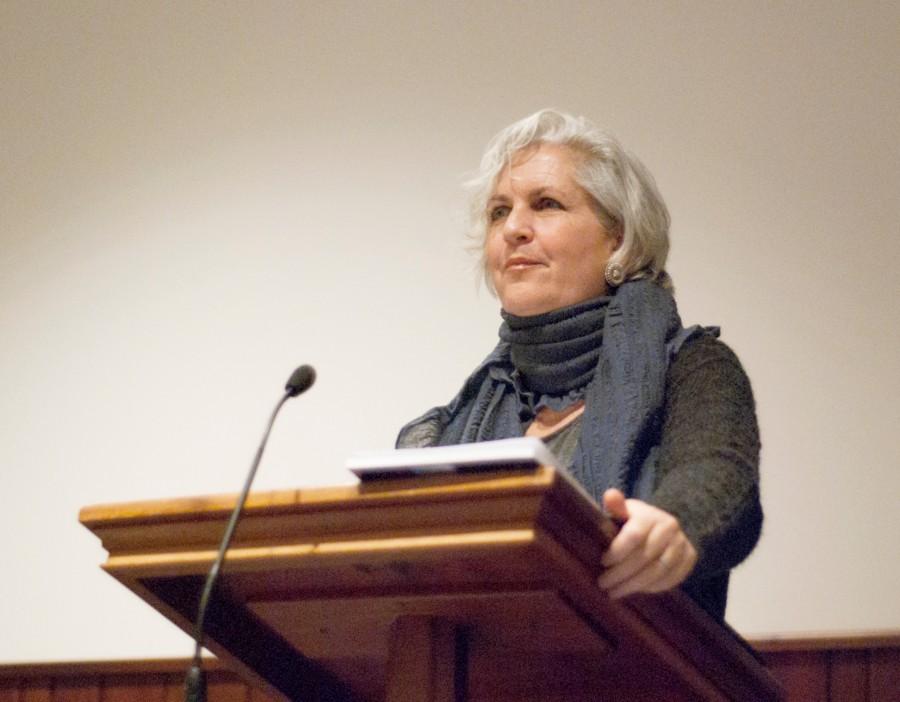Are you aware that the Devil is an environmentalist?
Most Guilford students would be amused or even offended by such a query. However, when Terry Tempest Williams was asked this very question as a young science teacher in Utah, she admitted that — regardless of whether the Devil was or not — she was an environmentalist through and through.
Admitting her environmentalism to herself and her supervisor was a risky move in the conservative Mormon community where Williams worked, but it led her to become an author, activist, and naturalist.
Williams has written and edited works focusing on human relationships with nature. During her visit to Guilford on March 15 as a part of the Green & Beyond theme year, Williams spoke to students about her experience as an activist author.
“My relationship to activism is tied to the land,” Williams said in a writing workshop in King Hall. “Early on, I was a single topic activist — I was focused on the wilderness.”
Williams later became involved in other aspects of social justice, including women’s and minority rights. Nuclear testing became important to Williams in the late 1980s, as her mother battled cancer.
“I come from a clan of one-breasted women,” Williams said. “Nine women in my family have had mastectomies. Seven are dead.”
In “Refuge: An Unnatural History of Family and Place,” Williams explores whether the high cancer rate in her family is a result of nuclear testing done by the U.S. government in the 1950s and 60s.
“I kept having this dream of a flash of light illuminating the desert at night,” Williams said. “I told my father about it, and he said, ‘That isn’t a dream. You saw it.’ It wasn’t a dream, it was a memory.”
“In 1957, my family stopped our car on the side of the road,” said Williams. “I was two, my mother was pregnant. There was a flash of light and a golden mushroom cloud rose over the desert.”
According to Williams, nuclear tests were done only when the wind blew in certain directions. The Mormon communities around Salt Lake and the Native American reservations were seen as “low risk” communities, so tests were performed when the wind blew toward those areas.
Speaking out about her beliefs led Williams to commit acts of civil disobedience against nuclear testing and the Iraq War. Williams’ primary method of activism, however, is her writing.
“I’m 55 and I have a lot of anger,” Williams said. “But I transform this anger into sacred rage through my writing. The power of the people resides in their stories.”
In the writing workshop, Williams asked the students in attendance to exchange gifts with a partner, and then write a story about activism using these gifts.
“The giving game brought a lot of things to the discussion — humor, soulfulness, contemplation, creativity,” said Early College senior Holli McClean in an email interview. “Hearing the passion and anger and emotion with which other participants wrote shocked me. I hadn’t expected strangers to be that open or honest.”
“I enjoyed the workshop because it felt like the participants were asked to connect their hearts to their concerns for the world,” said Project and Communication Manager Kim Yarbray in an email interview. “I loved that we didn’t start at a place bigger than the place where we could exist together. As we saw through our writing processes, change starts with the self and extends out through small groups and into the larger context of the world.”
In her books and essays, Williams explores the connections between people and their environment. She also discovers the connections she has with her subjects.
“We each bring a part of us to our activism,” said Williams. “It is not a solitary process. All true activism resides in the home and the community.”

